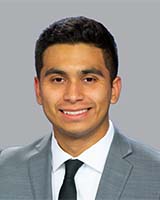'We know that's what we need for them': Latino organizations mobilize to educate, encourage amid vaccination gap

FAYETTEVILLE, N.C. (WTVD) -- As North Carolina looks ahead to vaccinating Group 4, the Hispanic population is still seeing quite the gap in people not getting their doses.
Since vaccines first became available, Eliazar Posada, the President and CEO of El Centro Hispano, has been looking to answer questions and provide guidance.
"One, where can you come to get the vaccination? Where can you call to make an appointment? Two, that the information is not being shared and to build trust with community members," Posada said.
The Triangle-based nonprofit is organizing countless vaccine clinics with the help of state and local health officials.
They've seen a solid turnout, according to Posada, "through the events we've done, we've vaccinated over 2,500 people in the last month or so."
CDC guidelines on what you can and can't do after being fully vaccinated
But, local organizations still have a very long way to go.
According to the North Carolina Department of Public Health and Human Services latest data, 3.7 percent of the Hispanic population has been partially vaccinated; still a far cry from the state's total population of around 9.8 percent.
In Cumberland County, according to the NCDHHS, 4.3 percent of the county's total 12.1 percent has received a COVID-19 dose.
Coronavirus: Tracking North Carolina COVID-19 cases
Another group making the same effort to change those numbers is Siembra N.C. Juan Miranda is the organizing director of the organization and spoke to ABC11 about a recent survey they conducted.
"We recently did a survey where ... surprisingly, two-thirds of our community - they actually were interested in getting the vaccine," Miranda said.
Miranda said their group has put together door-to-door knocks and approached Spanish speakers outside grocery stores and other high-traffic areas to inform them of their options.
"Especially because of language, because of access to technology, they were not, you know, they were not accessing this information," Miranda said.
A contributing factor to the low turnout, according to both organizations, is the lack of trust toward government institutions, which is why both Miranda and Posada have become middlemen in a sense.
Both acknowledged to ABC11 that not everyone will choose to get vaccinated but want to make sure those essential workers, who need it, know where and how to make an appointment.
Miranda said they're about to start a 10-week program where volunteers will go to Spanish-speaking communities and knock on doors to encourage people to get their shot or even help them sign up.





